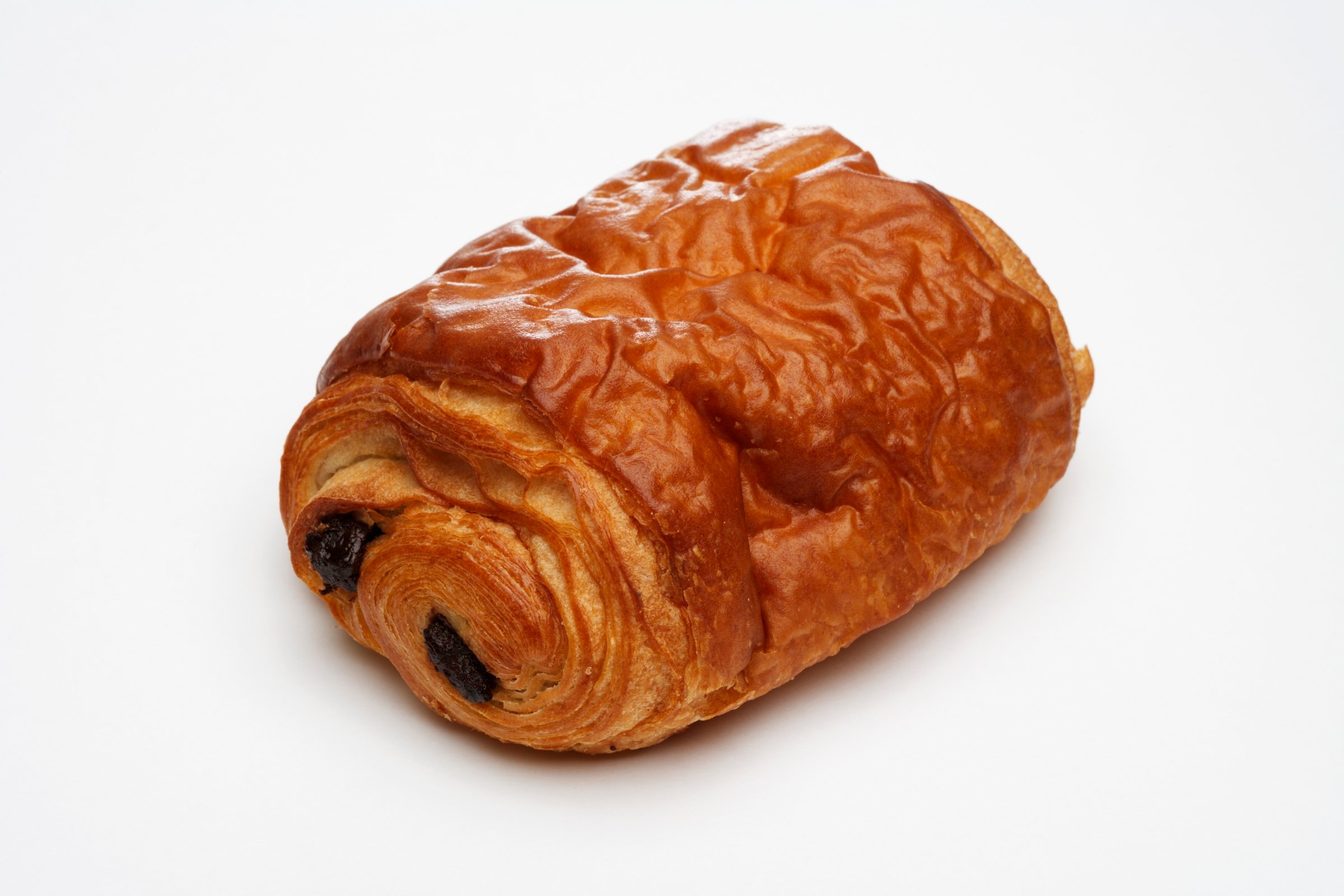
Bakeries may want to keep their doors open if they want to attract more customers; new research suggests that when people unconsciously smell a sweet and fatty odor—like the kind that emanates from a just-baked chocolate croissant—they’re more likely to choose to eat a high-calorie dessert.
In the new study published in the journal Appetite, researchers tested whether background cues, like sniffing something delicious, have an effect on a person’s food choices. Before the 147 people in the study even realized the experiment had begun, they were told to sit in a waiting room for 15 minutes. In one control group, they simply sat in a regular room. In another (luckier) group, they sat in a room in which the researchers had just baked pain au chocolat and activated a fragrance diffuser with the scent of the treat. The third group sat in an unscented room while a radio aired a piece about the nutritional dangers of fatty and sweet foods, and the final group experienced both the chocolate scent and the audio messages.
MORE: You Asked: Is Eating Dessert Really That Bad For Me?
Then, the people in the study were taken into a different room where they were asked to serve themselves a lunch of a starter, a main course and a dessert from a buffet.
People who had unwittingly smelled the sweet-fatty odor of the pain au chocolat were more likely to choose a high-calorie dessert, like a waffle, compared to people who hadn’t been exposed to the scented room. (Those people were more likely to choose the low-calorie dessert of applesauce.)
MORE: A New Taste Has Just Been Added To The Human Palate
Surprisingly to the researchers, the people who heard the nutritional messages also picked more high-calorie desserts that the control group, as did the group that experienced both the scent and the messaging. “We can assume that people who are faced with a complex and potentially overwhelming set of health messages every day do not pay attention to these messages,” the study authors write. “Consumers are exposed to hundreds of advertising messages per day and cannot pay attention to all of them.” Instead of taking away a healthy eating message from the radio, the researchers surmise that the men and women may have unconsciously focused on the words “fatty” and “sweet” instead.
The study sample is small, and the researchers acknowledge that they weren’t able to examine other factors related to eating habits and preferences, like gender and age. Still, the study provides insight into cues we may not even realize are influencing the foods we choose.
More Must-Reads from TIME
- Why Trump’s Message Worked on Latino Men
- What Trump’s Win Could Mean for Housing
- The 100 Must-Read Books of 2024
- Sleep Doctors Share the 1 Tip That’s Changed Their Lives
- Column: Let’s Bring Back Romance
- What It’s Like to Have Long COVID As a Kid
- FX’s Say Nothing Is the Must-Watch Political Thriller of 2024
- Merle Bombardieri Is Helping People Make the Baby Decision
Contact us at letters@time.com